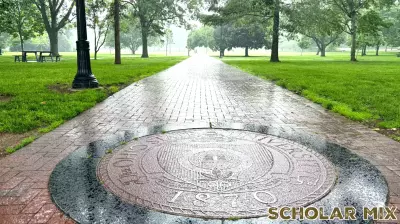Examining the Impact of Trump's Education Reforms on Schools
April 28, 2025 - 17:18

President Trump's recent education reforms aim to revise college accreditation processes and modify school discipline policies, stirring a significant response from educators and stakeholders. These changes are designed to reshape the educational landscape, potentially affecting how schools operate and how students are assessed.
The proposed revisions to college accreditation could lead to a more flexible system that emphasizes innovation and accessibility. Proponents argue that this could open doors for non-traditional education providers and enhance opportunities for students. However, critics express concerns that loosening accreditation standards may compromise educational quality and undermine the value of degrees.
Additionally, alterations to school discipline policies are expected to promote a more lenient approach, focusing on restorative practices rather than punitive measures. This shift aims to reduce suspensions and expulsions, particularly among marginalized groups. Educators are divided on this issue, with some believing it fosters a more inclusive environment, while others worry it may lead to challenges in maintaining order and accountability in classrooms.
As these reforms unfold, the long-term effects on students, educators, and the overall education system remain to be seen.
MORE NEWS

February 25, 2026 - 05:37
Ohio education news: K–12 schools, colleges and policy updatesThe educational environment across Ohio continues to evolve as state policymakers, district leaders, and institutions grapple with foundational issues of funding, curriculum, and student support....

February 24, 2026 - 02:27
How WA colleges are preparing for ICEPublic colleges and universities across Washington state are proactively updating their campus safety and communication plans in anticipation of potential federal immigration enforcement actions....

February 23, 2026 - 20:04
Government Outlines Major Overhaul for Special Educational Needs System in EnglandSignificant reforms to the Special Educational Needs and Disabilities (SEND) system in England have been unveiled by the government. The planned changes, set to be implemented over the coming years...

February 22, 2026 - 23:59
AI is Changing Nursing Education and Raising New Graduate ExpectationsThe integration of Artificial Intelligence into healthcare is fundamentally transforming how nurses are trained, setting a new and higher bar for those entering the profession. Nursing education...